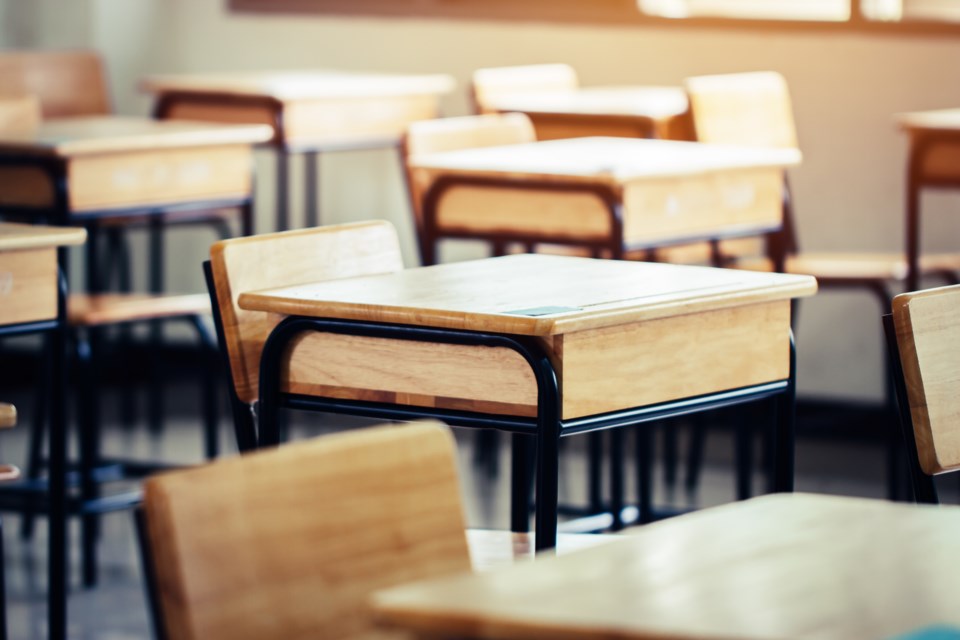A local expert on infectious diseases says a plan to return kids to school on Monday while community transmission is high in many parts of the province is likely to result in an increase in COVID-19 cases transmitted throughout the schools unless some meaningful changes are introduced.
Amy Greer is an infectious disease epidemiologist and Canada Research Chair in Population Disease Modelling and associate professor at University of Guelph’s Department of Population Medicine.
Greer took to Twitter this week to lay out the reasons she believes sending kids back to school without a change in plan is a bad idea, especially as community transmission rates are much higher than they were in the fall.
On Twitter she called the plan to return children to school Monday "reckless and dangerous."
Speaking by phone Wednesday, Greer said she expects the provincial government to make another last-minute change in plan to either keep kids in virtual learning or to reduce class sizes and put in additional supports for in-person learning.
She said she is frustrated that there doesn’t seem to be a plan already in place, both as an infectious disease expert and as a parent.
“In the face of high levels of community transmission, we need a clear and transparent plan immediately,” said Greer. “If that means we have to stay in virtual school until Jan. 23 and it buys us a little more time, then let’s do that so we have a plan that parents can see and understand for how we are going to work to escalate, if we need to, school supports.”
On Wednesday the Elementary Teacher's Foundation of Ontario issued a press release requesting the province delay a return to in-school learning.
"Ontario is currently at the height of the COVID-19 pandemic. ETFO has significant concerns about the health and safety of educators and students if they return to in-person learning on January 11, particularly in those communities where the rate of transmission is high," said a release from the union.
Last minute change of plans by the government results in frustration from students, parents and educators, said Greer.
“It seems like we always change the plan at the eleventh hour,” said Greer. “I expect it will be again a last minute change of plans. It’s hard for people to plan in that type of scenario.”
Greer said she is concerned that existing in-school supports are not sufficient in the context of high community transmission of COVID-19.
The return to school plan also comes a week after the end of the winter break. Although Greer thinks many people adhered to the public health directives to limit contact outside of one’s own household, some others may not have heeded the warning.
“My hope is we recognize that high levels of community transmission means our current situation is very different than it was in the fall. To compensate for that, if we want kids to go back to in-person school — we need to add or escalate additional measures in school to reduce the risk of transmission within schools,” said Greer.
She added: “We need a plan to do that, and we don’t plan to have one right now. My hope is we take the time now to decide how to do that.”
If kids are to return to school, Greer would like to see smaller class sizes implemented.
“If there are smaller classes the risk of exposure within that class has an upper bound, for example you are exposing 15 kids instead of 28 or 30,” said Greer. “That gives kids and teachers greater space to be able to engage in physical distancing, which can also reduce the risk of transmission.”
Smaller class sizes would be especially helpful in areas with the highest levels of transmission, said Greer.
If there is a confirmed case of COVID-19 in a classroom, the students in that class are dismissed to online learning, which puts pressures on parents who may not be able to take time off to supervise them.
“That’s going to be really hard for families to manage, so we have put in supports for families and have paid sick days so they can find a way to address some of that,” said Greer.
